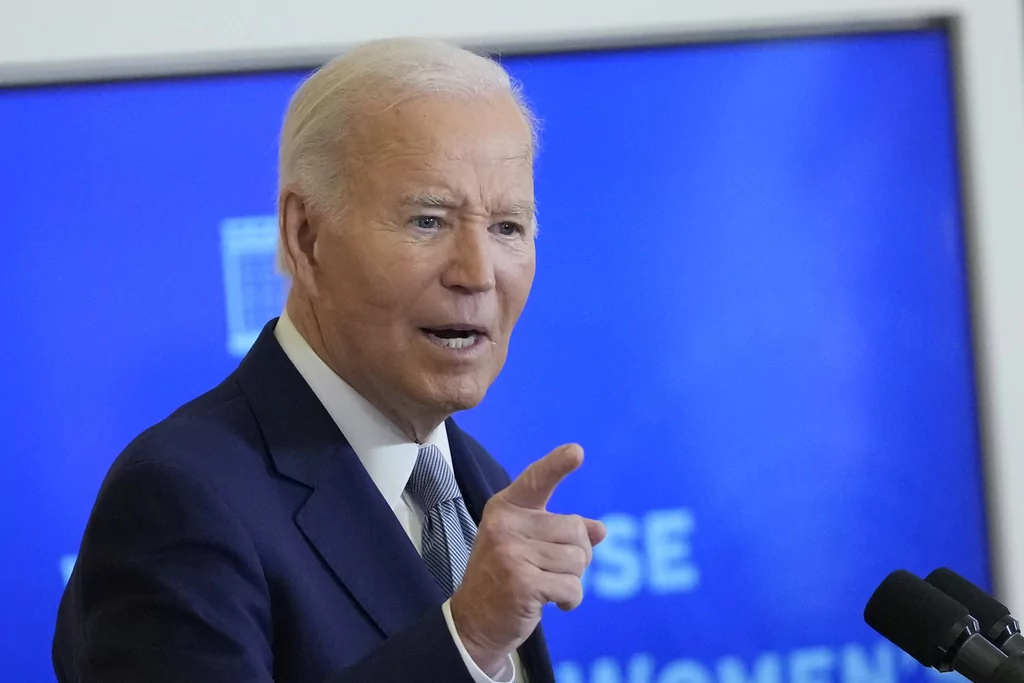

President Joe Biden’s past efforts to pardon specific groups of people en masse have fallen short of expectations, a reality the White House is declining to address in the waning hours of his presidency.
Biden, in 2022 and 2023, issued presidential proclamations designed to pardon “thousands” who were convicted in federal courts of simple marijuana possession offenses and its use. As of this December, the Office of the Pardon Attorney has issued only 257 certificates of pardon to applicants for relief.
MEET THE NEW CONGRESS: THE HOUSE AND SENATE FRESHMEN ELECTED TO SERVE NEXT YEAR
Biden, most recently in June, launched a new application program to wipe clean the records of veterans expelled from the military due to their sexual preferences from a period spanning World War II through the ending of the Pentagon’s “don’t ask, don’t tell” policy in 2011.
At the time, the White House estimated the executive forgiveness would pardon thousands, but a Sept. 26 report from the War Horse indicated that just eight veterans, six from the Air Force and two from the Army, had applied for the program.
Neither the White House nor the Department of Veterans Affairs responded to repeated inquiries about how many gay veterans had applied for pardons through Biden’s new program. A spokesperson for the Pentagon told the Washington Examiner that they “do not have any data on how many people have applied for pardons.”
The problems with Biden’s past pardon efforts are coming into focus as Democrats are lobbying the president to use his unique power to go big in his final days in office to help thousands of more convicts.
The pressure on Biden to take bold action to curb mass incarceration intensified after Thanksgiving when the president caused a media storm by pardoning his son Hunter. The younger Biden was waiting to be sentenced on gun and tax crimes, but the president issued a sweeping get-out-of-jail-free card after insisting he would not intervene in the judicial process. Even one of the president’s former closest advisers, Anita Dunn, slammed his Hunter pardon rollout.
On Thursday, Biden announced his latest round of pardons, in which he commuted the sentences of about 1,500 people who were released from prison and placed in home confinement during the COVID-19 pandemic and pardoned 39 others convicted of nonviolent crimes. “These actions represent the largest single-day grant of clemency in modern history,” the White House wrote.
As Biden teased “more steps in the weeks ahead,” experts suggested Biden might do more to improve his past pardon programs.
Cayce Myers, a professor at Virginia Tech’s School of Communication, said that Biden encouraging veterans qualifying for his military pardon program would be a “very good strategy” to push back on criticism of his pardoning of Hunter Biden.
DEMOCRATS WEIGH CHANGE IN STRATEGY TO AVOID MIDTERM AND 2028 DEFEATS
“I think that there is widespread support for that type of blanket clemency, particularly for LGBTQ+ veterans, and that was seen as a relic of a very unfair system, and it would speak to moving past some of these historic injustices,” Myers said. “I don’t know that that changes the opinion [regarding Hunter’s pardon], but it certainly would change maybe the media cycle, and it would divert, I think, some of this very harsh criticism of him to focusing on positive things in his presidency.”
Biden is also considering preemptive pardons for lawmakers and public figures President-elect Donald Trump has threatened to target, including Democrats in office and those who served on the House Jan. 6 committee. Kash Patel, Trump’s nominee to serve as director of the FBI, has talked of going after a lengthy list of Trump enemies.
Still, some Democrats have ramped up pressure on the White House in recent weeks to have the president extend blanket pardons to specific groups viewed as unfairly jailed, including “elderly and chronically ill, those on death row, people with unjustified sentencing disparities, and women who were punished for defending themselves against their abusers.”
Myers told the Washington Examiner that extending such blanket pardons might help the president’s image on his way out the door, including for those “systemically treated badly by the justice system.’”
BIDEN’S ‘TRUMP-PROOFING’ FOREIGN POLICY REVOLVES AROUND UKRAINE AND NATO
“He’s thinking about how he’s going to be remembered, and he’s only got December and part of January to do that,” Myers said. “So, I would not be surprised if he doesn’t do some of those blanket commutations or pardons.”
Jon Schaff, a professor of political science at Northern State University, said that based on the administration’s “silence” on the efficacy of the pardon program for veterans, the announcement over the summer “was lip service for political reasons.”
“Candidates are always putting forth policy initiatives that are little more than window dressing,” Schaff said, noting that Biden’s original announcement came when he was still running for reelection and as the White House was celebrating Pride Month. “I don’t know how serious Biden was about this. My instinct tells me this was taking a position on an issue rather than actually trying to pursue a really serious policy initiative.”
CLICK HERE TO READ MORE FROM THE WASHINGTON EXAMINER
Yale Law School professor Michael Wishnie, who specializes in veteran law, believes the low number of LGBT applicants shows that affected veterans view Biden’s pardon program as simply too much red tape. Wishnie noted that, even if a pardon is approved, the veteran in question must go through a separate process to apply to have his or her dishonorable discharge upgraded and, therefore, become eligible to receive VA benefits.
“Rather than do the work itself to correct the Pentagon’s wrongdoing, the administration put the burden on veterans to prepare lengthy applications,” he told the War Horse. “These low figures are the natural and foreseeable result of that choice.”